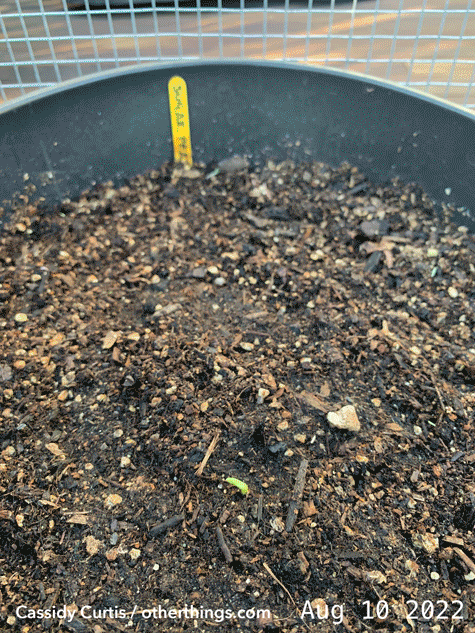When God Gets His Hands Dirty: The Sacrality of Work and Worship
God is inviting us into partnership with Him in stewardship, renewal and cultivation of the world He made for His glory
When was the last time your hands got dirty? I mean really, really dirty? As I was reading through Genesis 1-2 in preparation for the Back to Eden season of the podcast, I was struck by the fact that God got his hands dirty ― maybe more than once.
Most of us are familiar with the creation narrative in Genesis 1. God created the world in seven days by speaking it into existence. God said “light” and there was light. The only creature that was not spoken into existence was man. Chapter 1 doesn’t specify how He created humans, only that “God created man in his own image” (Genesis 1:27).
However, chapter 2 gives us more insight. It provides an entirely different perspective on the creation story, focusing on the creation and purpose of man. This is where we see God getting His hands dirty.
“...then the Lord God formed the man of dust from the ground and breathed into his nostrils the breath of life, and the man became a living creature.” Genesis 2:7
Man was created in a unique and personal way, indicating a unique role and relationship for us within God’s creation. Instead of simply speaking us into being, God chose to plunge His fingers into the soil, form us from the dust of the ground, and breathe His life into us. And then what?
And the Lord God planted a garden in Eden, in the east, and there he put the man whom he had formed. Genesis 2:8
After forming and animating Adam, God planted a garden in Eden. Note that Eden was not the garden; it was the region in which the garden was planted. Four rivers flowed out of Eden (see Gen 2:10-14), so it probably included a mountain with rivers flowing down all sides. Somewhere on or near this mountain, God planted a garden for Adam.
Here’s the question I’ve been pondering: how exactly did God plant this garden? Look at the full context:
And the Lord God planted a garden in Eden, in the east, and there he put the man whom he had formed. And out of the ground the Lord God made to spring up every tree that is pleasant to the sight and good for food. The tree of life was in the midst of the garden, and the tree of the knowledge of good and evil. Genesis 2:8-9
When I read this passage, for some reason I envision a time-lapse movie sequence where the Spirit of God is swirling around the dirt field with trees, bushes, and plants exploding up from the ground like magic as Adam watches gleefully. Cue the soundtrack.
That is a possible scenario. God had just spoken the entirety of creation into existence. He could have easily popped out a garden for Adam. Yet I find it interesting that God waited until after Adam was created to plant the garden. Why didn’t He prepare a place for mankind first? The only reason I can conceive is that God wanted Adam to watch Him plant the garden.
How Long Does It Take a Garden To Grow?
Questions still linger. What exactly did Adam witness God doing? I am speculating here, of course, but consider what these verses clearly say. Verse 8 says that God “planted” a garden. How do you plant a garden? You dig a hole and put seeds in the ground. There is no indication that God did anything else.
What happened next? Did God throw some supernatural Miracle-Grow on the garden to cause the plants to be in full maturity? Or did it take some time? Verse 9 says that God “made to spring up every tree.” This sounds forceful to me - as if it happened in an unnaturally quick way. Yet the Hebrew verb translated “made to spring up” simply means “to sprout” in a normal and natural way. There is no indication that God defied the laws of physics here.
What if God planted a garden and then made Adam wait for it to grow? Imagine Adam watching the Father dig holes in the ground with His hands, drop in the seeds, cover them up, and then walk away. Adam would naturally wonder what was happening, and God could explain to Him how seeds take time to germinate. Maybe He even hints at what’s to come: “Adam, unless a grain of wheat falls into the earth and dies, it remains alone; but if it dies, it bears much fruit.” (John 12:24)
If God planted the garden naturally, then it allowed Adam some time to learn the ropes of cultivating the land. When the Lord eventually “put him in the garden of Eden to work it and keep it” (Gen 2:15), Adam would have had a good idea of what the work entailed. He would have already had his responsibilities modeled to him by God. By planting a garden in front of Adam and then asking him to care for it, God would be inviting Adam into His creative process - to be a steward of creation and a partner with Him. Like Father, like Son.
A Gardener and A Priest
As I have taught before, this commissioning of Adam in Genesis 2:15 is actually priestly language. The original Hebrew verbs translated into “work” and “to keep” are used together in Scripture to describe the responsibilities of the Levites in the Tabernacle and Temple. Undoubtedly, when the Hebraic people read this phrase they would have known exactly what Moses was saying: Adam was a priest and the garden was a temple. This brings an entirely new dimension to the story. The garden was to be a place of the manifest presence of God. It was to be “guarded” by Adam as a holy space, free from impurity. As a priest, Adam was not just called to work but to worship.
These two responsibilities were probably perfectly intermingled and overlapped in a way that Adam was seamlessly ministering to God (worship), conversing with God (prayer), and working with God in creation (stewardship). His work was worship. His worship was creative. His creativity was work. He took God’s creation, cared for it, cultivated it, and offered it back to God as an offering and sacrifice of what God has first given to Him. This is probably how Cain and Able learned to offer sacrifices to God (Genesis 4). They learned to be priests from their parents.
Before the fall, Adam and Eve’s work and worship were a partnership with God in an intimate relationship. There was no “presence of God” as we know it (that term doesn’t show up until Genesis 3:8 - after sin separated humanity from God). God was simply present in all that Adam did. That which was transcendent was fully and constantly immanent. Like a fish in the water, the very glory and holiness and majesty of God’s nearness was the environment in which Adam dwelled. He knew nothing else. The garden was a sanctuary. It was God’s home and Adam’s home.
The mandate for Adam and Eve to be “fruitful and multiply” was not just about growing a family. It was about extending the garden to cover the earth. As Adam and Eve’s family grew, the borders of the garden of Eden would grow until the“earth was filled with the knowledge of the glory of the Lord as the waters cover the sea.” (Habakkuk 2:14) The original vision for earth is that it would blossom into a global garden of the presence of God, stewarded by families who worshiped and worked together creatively as a royal priesthood.
Just as the Father taught Adam to “work it and keep it”, Adam was responsible for teaching his sons — to multiply himself in his children. In this way, the priestly calling of humanity would be modeled and taught from generation to generation until the world was filled with worshipers and gardeners. Lovers and stewards. Priests and kings.
Three Takeaways
What can we take away from this renewed vision of Eden, the garden, and creation?
God is relational. Our entire existence is a result of God’s desire to glorify His name through an extended family that shares in the love of the Father, Son, and Holy Spirit. God has invited us to partner with Him in His creation project. He doesn't need us to do things for Him, but He wants us to do things with Him. He is a Father, a Bridegroom, and a Friend who wants an intimate relationship with His people.
Work is sacred. Work is not a curse. Adam was called to work in the garden as part of His original purpose. God works, and we are made in His image to do work. However, sin has indeed tainted work. Since the fall we now labor “in pain” (Gen 3:17). Work was better before sin and will be better after Jesus returns. But work itself is an enteral and sacred responsibility. Our work should be done “as to the Lord, and not unto men” (Colossians 3:23) and as an expression of our lifestyles of worship.
Worship is fundamental. We are not just “kings” who steward creation under God’s authority. We are a “kingdom of priests” who first and foremost minister to the Lord in worship and prayer. Being in His presence and cultivating intimacy with Him is what emboldens us, empowers us, and equips us to walk in the authority that He’s given us to accomplish the mission He’s assigned to us.
Previously, whenever I imagined the creation of the world, I tended to envision the Lord as being detached from His creation. In my mind, the Creator was like a wizard who cast His spell, waved His wand, spoke the magic words, and “poof” — the world existed. This might be our takeaway from only reading the creation account in Genesis 1. But the vision of a cosmic wizard does not fit with what we read in Genesis 2. There we see God involved and incarnate in the process of creation. He sticks His hands in the dirt to create man. And he likely sticks His hands in the dirt again to plant the garden for Adam.
I have some good news today. God still sticks His hands in the dirt. He still creates. He still speaks His creative word. He still plants gardens. He still walks with His sons and daughters. He still invites us into partnership with Him in the stewardship, renewal, and cultivation of the world He made for His glory. He’s inviting us again to “tend and keep” what He’s given to us as good stewards. But He’s not leaving alone to do it. Though sin had separated us from the garden of His presence, Christ has brought us back into a relationship with the Father through His death and resurrection. The seed fell into the ground, died, and is now bearing fruit. Jesus is bringing us back to Eden.







